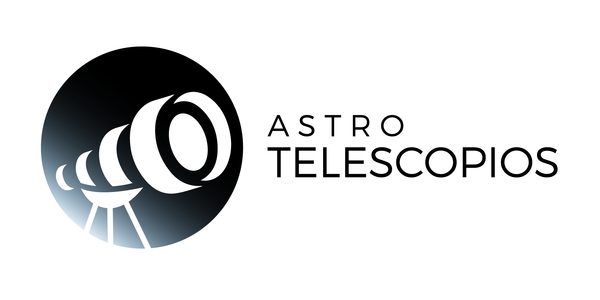
October astronomical calendar: A month full of celestial phenomena
The month of October 2024 brings us a sky full of fascinating astronomical events . From eclipses and meteor showers to planetary conjunctions, this month offers unmissable opportunities for astronomy lovers.
October 2: Annular Solar Eclipse (Southern Hemisphere)
The month begins with a spectacular annular solar eclipse on October 2, visible in its fullness from parts of South America and the Pacific Ocean. Although the Moon will not completely cover the solar disk, the so-called "ring of fire" will occur, a phenomenon in which a thin luminous ring of the Sun surrounds the Moon. This eclipse will be visible as partial from countries such as Peru, Bolivia, Brazil, Paraguay, Uruguay, Chile and Argentina. The band of annularity will pass over Easter Island and cross southern Chile and Argentina.
October 5: Conjunction of the Moon and Venus (Northern Hemisphere)
Towards dusk on October 5, we will be able to observe the conjunction between the thin crescent Moon and bright Venus. Both celestial bodies will be in the constellation of Libra, close to the western horizon. To appreciate this phenomenon, it will be necessary to have a clear horizon, since the conjunction will occur at a low altitude.
October 8-9: Draconid meteor shower (Northern Hemisphere)
The first meteor shower of the month, the Draconids, will peak between the night of October 8 and the early morning of October 9. Although this shower is usually modest, it has occasionally surprised with peaks of hundreds of meteors per hour. It is a special shower because the meteors appear to emanate from the constellation of the Dragon (Draco), making it a spectacle for those who can observe it from dark skies.
October 10: First Quarter Moon
On October 10, the Moon will reach its first quarter phase, which marks a good time for astronomical observations, since its light will not be as intense as during the full moon phase.
299,99€
October 14-15: Conjunctions with Saturn and Neptune (Northern Hemisphere)
Planet lovers will have two events to mark on their calendars. On October 14, the Moon will be in conjunction with Saturn, visible to the southeast at dusk. The following day, on October 15, the Moon will align with Neptune, although to observe this distant gas giant you will need a telescope.
October 17: Full Moon
The October full moon will light up the night sky on the 17th. During this phase, the Moon will be completely illuminated by the Sun, offering a perfect opportunity to enjoy its beauty with the naked eye.
October 21-22: Conjunction of the Moon with Jupiter and Orionid meteor shower (Northern Hemisphere)
The dawn of October 21 will bring a conjunction between the Moon and Jupiter, one of the brightest planets in the sky. In addition, between October 21 and 22, the Orionid meteor shower will reach its peak. However, this year, observation of the Orionids will be somewhat hampered by the light of the Moon.
October 24: Last quarter and conjunction with Mars (Northern Hemisphere)
On October 24, the Moon will reach its last quarter phase and will be in conjunction with Mars , the bright reddish planet that dominates the morning sky. Mars will be located near the star Pollux, in the constellation Gemini.
649€
Light changes and the equinox
September 22 marked the equinox, marking the beginning of autumn in the northern hemisphere and spring in the southern hemisphere. During October, the days become noticeably shorter in the northern hemisphere; in the Iberian Peninsula, for example, day length decreases by approximately three minutes each day. In the middle of the month, the Sun in Madrid will rise at 8:26 a.m. and set at 7:34 p.m., offering around 11 hours of sunlight.
Recommended Observations
This October, the evenings begin with Venus shining brightly at dusk, while Saturn and Jupiter rise in the southeastern sky shortly after sunset. The combination of these phenomena and meteor showers make this month an ideal time for those who enjoy astronomical observation.
In short, October is a month packed with celestial events. Whether you're fascinated by planets, shooting stars, or eclipses, the night sky promises to provide unforgettable spectacles. Make sure to mark the dates on your calendar and enjoy what the cosmos has to offer.





